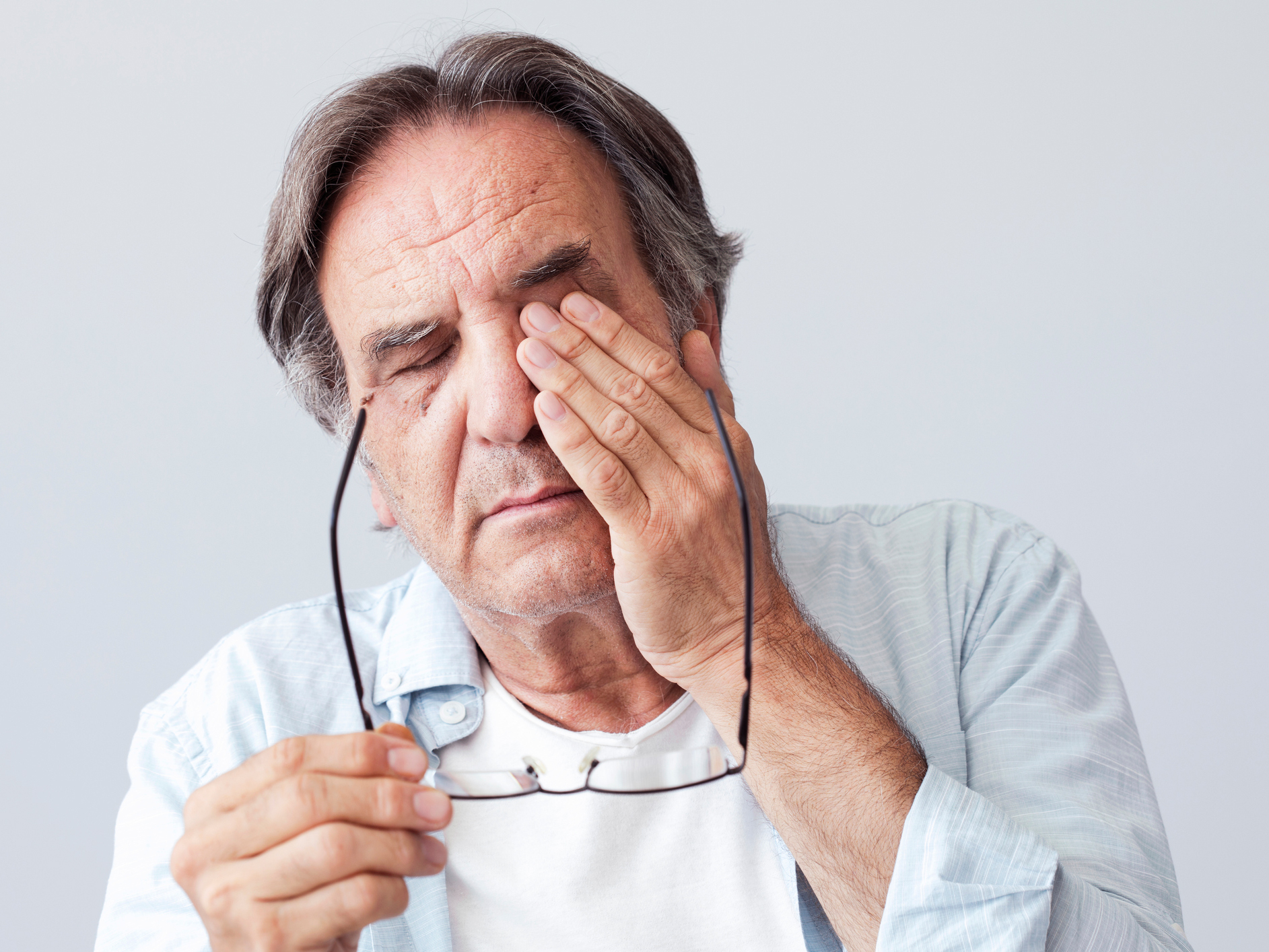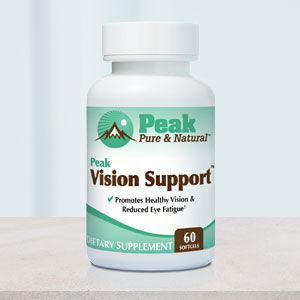Get Easy Health Digest™ in your inbox and don’t miss a thing when you subscribe today. Plus, get the free bonus report, Mother Nature’s Tips, Tricks and Remedies for Cholesterol, Blood Pressure & Blood Sugar as my way of saying welcome to the community!
Baby boomers: Shingles is putting your vision in danger

Most of us have heard of the shingles virus, especially if you’re past middle age when your risk of being diagnosed with shingles goes up.
Basically, if you’ve ever had chickenpox, you’re also at risk for shingles.
That’s because the virus that causes chickenpox doesn’t ever fully clear you’re body, even though you recover from your first round of it. It just lies dormant and lies dormant in the roots of your nerves. This means it can be reactivated at any time, leaving you to suffer from painful blisters, searing nerve pain and even possible long-term damage.
And, there’s something else you should know…
More and more Americans are being diagnosed with eye complications from shingles.
Herpes zoster ophthalmicus
Yup, you read that right.
Shingles can spread to your eyes and it’s happening more often than ever.
Related: Shingles: It’s not just grown-up chickenpox
According to new research by the Kellogg Eye Center, presented at the 2019 Association for Research in Vision and Ophthalmology annual meeting in Vancouver, the incidence herpes zoster ophthalmicus (HZO), when the virus gets in the eyes, tripled during a 12-year-period alone.
And, once it spreads to your eyes, it can cause corneal scarring and even blindness.
The researchers studied a group of 21 million adults and between 2004 and 2016. And, they found that while at the beginning of the study period, there were about 9.4 cases of HZO per 100,000 people by 2016, the rate had grown three-fold to 30.1 cases per 100,000 on average.
They also discovered that shingles spreading to the eyes is more of a problem for three groups specifically:
- Women
- Caucasians
- People over the age of 75
In fact, the study results show that the first two populations had an incidence of 29.1 people per 100,000. while 53 people per 100,000 over the age of 75 will have the virus spread to their eyes.
Protecting your sight
Because of the severity of the disease and the potential it has to damage your sight, it’s vital that you take steps to avoid the virus in order to not only protect yourself from the painful rash but also protect your eyesight.
Since you’re much more likely to end up with shingles and the disease is more likely to spread to your eyes when your immune system becomes weakened, shoring it up is the first step in this plan.
To keep your immune system strong:
- Get plenty of rest
- Stay hydrated
- Maintain a healthy weight
- Eat plenty of fresh fruits and vegetables
- Exercise regularly
- Practice good hand washing techniques
If you do get shingles, early diagnosis and treatment can help you prevent serious eyesight complications so see your doctor right away for help.
Signs to be aware of
In the early phase of shingles moving to your eyes, you’re likely to experience sharp, stabbing, or burning pain as well as itching. This can occur around your eyelids, on your forehead or at the tip or sides of your nose.
You may also have the same types of symptoms you would expect with any virus, including fever, tiredness, chills, and headache.
Because shingles in the eye can lead to blindness, see a physician right away. Your doctor will generally give you antivirals as well as steroids and eye drops to help you recover and manage the pain. Another option is the ask about the shingles vaccine, which can still help you avoid subsequent outbreaks.
And, in the meantime, it helps to lay a cool, wet cloth on the blisters to calm the pain and eat well and avoid stress.
Shingles is a painful condition that can lead to dangerous complications and even blindness. Protect yourself and those around you by keeping your immune system strong, practicing good hygiene and hand washing, keeping the rash covered, and avoiding scratching it to prevent spread.
Sources:
- Aging baby boomers push sky high incidence of shingles of the eye — EurekAlert!
- How can shingles affect the eyes? — Medical News Today
- Keep Your Immune System Healthy — WebMD
- Herpes Zoster (Shingles) Eye Infections — Summit Medical Group













